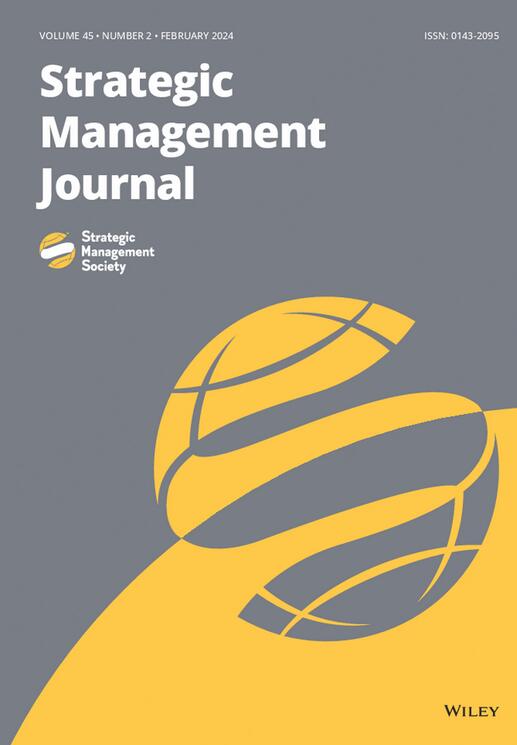The influence of media scrutiny on firms' strategic eschewal of lobbying
IF 7.2
1区 管理学
Q1 BUSINESS
引用次数: 0
Abstract
Research SummaryLobbying allows firms to influence the government to potentially limit firms' costs during product recall crises. However, such lobbying can elicit scrutiny from the media if the lobbying gives the impression that firms wish to save costs at the expense of safety, thereby appearing hypocritical. We theorize that when faced with negative media coverage of product recalls or recall‐related lobbying, firms媒体监督对企业放弃游说战略的影响
研究摘要游说使企业能够对政府施加影响,从而在产品召回危机中限制企业的成本。然而,如果游说给人留下企业希望以牺牲安全为代价来节约成本的印象,从而显得虚伪,那么这种游说就会引起媒体的审视。我们的理论是,当面临媒体对产品召回或召回相关游说的负面报道时,企业会战略性地回避游说,以限制媒体的进一步审查及其相关的负面影响。我们利用 2008 年至 2022 年美国汽车行业的游说活动来验证我们的假设。我们还就媒体如何影响企业的游说决策对游说者进行了 15 次补充访谈,从而进一步深化了我们对战略性回避的研究。当遇到媒体对产品召回的负面报道或与召回相关的游说时,企业更有可能战略性地放弃游说,以尽量减少额外的、不必要的媒体关注及其相关的负面影响。管理者应注意,即使游说可能有助于限制召回成本,但也可能造成潜在的声誉损害。因此,管理者必须关注来自媒体的声誉线索,这可以帮助他们判断游说何时可能会产生问题,并使他们能够先发制人地避免此类游说。
本文章由计算机程序翻译,如有差异,请以英文原文为准。
求助全文
约1分钟内获得全文
求助全文
来源期刊

Strategic Management Journal
Multiple-
CiteScore
13.70
自引率
8.40%
发文量
109
期刊介绍:
At the Strategic Management Journal, we are committed to publishing top-tier research that addresses key questions in the field of strategic management and captivates scholars in this area. Our publication welcomes manuscripts covering a wide range of topics, perspectives, and research methodologies. As a result, our editorial decisions truly embrace the diversity inherent in the field.
 求助内容:
求助内容: 应助结果提醒方式:
应助结果提醒方式:


